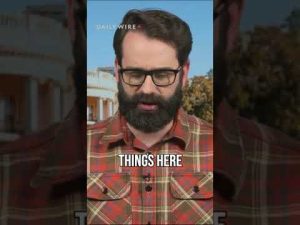In an era where reason appears to be increasingly overshadowed by radical narratives, it is refreshing to see some semblance of sanity return to the digital sphere. Meta, Facebook’s parent company, has ruled that calling a trans-identifying male a boy, regardless of what some may prefer to hear, does not constitute hate speech in certain political and religious discourse contexts. This decision stems from cases involving posts that identified a transgender girl competing in a girls’ race. In doing so, these posts affirmed a perspective that clashes with the ongoing discussions about gender identity.
The saga of social media’s foray into censoring scientifically obvious statements, while bowing to different ideological stances, has been complex. For years, platforms have been quick to moderate content, leading to debates about whether recognizing inherent biological truths is permissible or considered hate speech. What we are witnessing now with Meta’s decision is a shift—one that signals a discussion about recognizing objective reality in specific contexts, at least in some corners of the digital landscape.
It is bewildering yet intriguing to reflect on how these social media platforms have become entangled in the delicate balance of what constitutes ‘misinformation’. In the name of inclusivity and progress, reason and biological science have often been at the forefront of these debates. However, Meta’s ruling highlights the contested space between individual rights and freedom of expression, emphasizing that identifying someone’s gender identity cannot override all discourse norms.
Society’s fixation on affirming one’s personal identity, while also acknowledging collective understanding and scientific observations, presents a complicated path. Upholding that a trans-identifying male remains biologically male, regardless of personal convictions or societal pressures, is framed not as an attack on individuals but a reflection of an ongoing discussion about scientific principles and personal identity. The recent decisions by Meta suggest a unique narrative in this complex dance of social norms and scientific discourse.
As the world watches, more platforms may examine Meta’s lead, finding grounding in respecting free expression amid ideological diversity. It is crucial for a dialogue that acknowledges realities does not demand silence or fear of retribution for either side. Let this serve as a reminder that navigating free speech and scientific understanding is intricate, requiring careful consideration of all perspectives on the spectrum.







